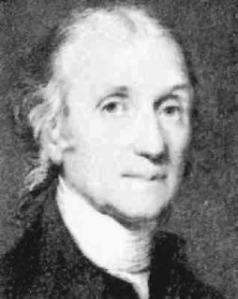As sometimes happens, the chat you were having about poems and poets led to a dispersal of the crowd. Some folks just don’t know what to do with themselves when literary criticism raises it’s head. No matter, a new circle has coalesced and the conversation has wound its way through to The Biggest Loser. Naturally enough, that has partygoers hypothesizing on the weight of various people and objects, from Kirstie Alley to the Washington Monument. There have been quite a few witty comparisons dropped here and there, and one fellow has decided that the weight of the host’s ego may well rival that of the Earth. Well well, you might, in this comment, see a point at which to drop a bit of proverbial knowledge.
It just so happens that the Earth was weighed for the first time in the 1700s by a recluse called Henry Cavendish. The Cavendishes were a rather impressive bunch. Not only was Henry’s grandfather the Duke of Devonshire, but his family is responsible for three centuries worth of patronage for British science, and for a not insignificant number of scientific achievements. Henry discovered hydrogen, though he called it “inflammable air,” and a member of his family would later establish the world renown Cavendish Labs.
But enough about that, I mentioned him weighing the world. The story actually starts with Cavendish realizing that Mason and Dixon’s measurements for their line (yes, that one) were slightly off, and he hypothesized that their plumb lines were being pulled out of whack by the Allegheny mountains. So, under his direction, a couple of fellows from the Royal Society went up to a mountain in Scotland called Schiehallion and measured how much the mountain distorted the drop of their plumb line from various sides. With that information in hand, they made an estimate as to the density of the mountain, and through it, that of the Earth, along with it’s weight. However, Cavendish didn’t think their work was up to snuff. He continued to play with the idea, and, at the age 67, he started a set of experiments that wound up providing the measure of the gravitational constant, G. Not bad for a man that spent all day in his basement playing with bunson burners, ey? So, let’s see…
“Good luck finding a scale large enough to measure that. Though, I guess we could play Henry Cavendish and measure the weight of his ego based on its effect on others in the room? Might take a bit of watching, but we could probably get pretty close, especially if he keeps talking to Jean-Claude over there. The two of them together could probably tip an elephant.”
Ok, so you didn’t really get through all the intricacies of Cavendish’s achievement, but you did a very nice job.



